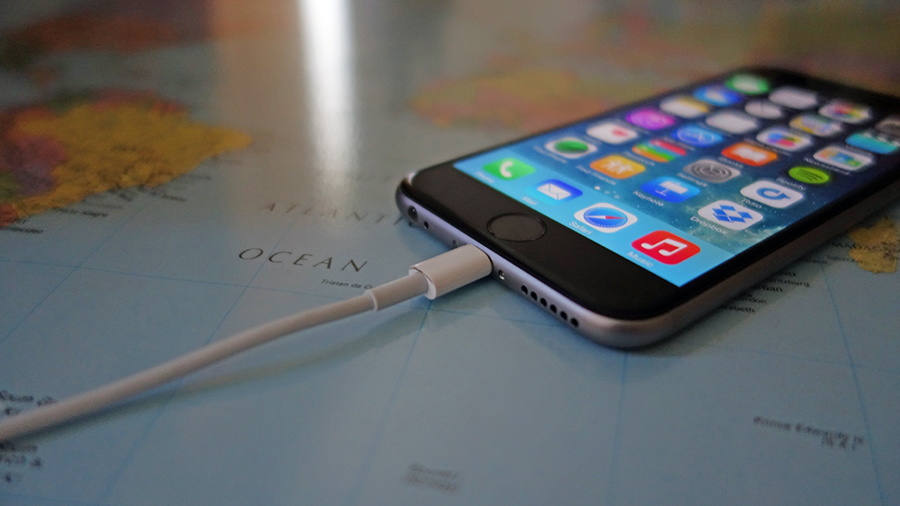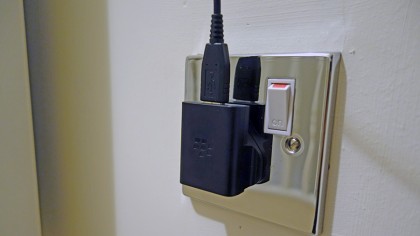Should we unplug our chargers each night?
The cost of plugging in your mobile til morning

Sign up for breaking news, reviews, opinion, top tech deals, and more.
You are now subscribed
Your newsletter sign-up was successful
If you own a smartphone of any description then you're probably familiar with seeing the battery warning level light flick on at some point during the evening. It's now become standard practice for phones to be charged up at least once every 24 hours, and the easiest time to do that is overnight when they're sat still doing nothing but waiting for the morning.
Is this really the most sensible option, though? Are we causing permanent damage to our handsets by keeping them charged for much longer than they need to be? (Assuming you get more than two hours of sleep each night, that is.) And just how much unnecessary power is being drawn by our chargers while we're snoozing away oblivious?
The charger facts
The good news is that a lot of progress has been made in the efficiency and performance of smartphone chargers in recent years, thanks to organisations like the International Energy Agency and the manufacturers themselves.
The IEA's One Watt Initiative helped get standby power usage down below a single watt and then below half a watt in 2013 for many electronics. What does that mean? Well, when your charger is plugged in but not connected to a device (while you're out at work say) it's only using the equivalent of a few pence worth of energy over an entire year.
That's assuming you're using a phone and charger made in the last few years and abiding by current regulations, of course; but the trend is moving in the right direction.
As Cambridge professor David MacKay points out, that half a watt equates to saving one hot bath's worth of energy every year if you unplug your charger when it's not in use. Multiply that by everyone who owns a smartphone and you get a lot of hot baths — but only a very small percentage of the energy that those people are using in total.
Of course not using energy is better than using it, but as Professor MacKay puts it: "Obsessively switching off the phone charger is like bailing the Titanic with a teaspoon. Do switch it off, but please be aware how tiny a gesture it is."
Sign up for breaking news, reviews, opinion, top tech deals, and more.
Overnight charging
That half watt figure goes up by a factor of ten (give or take) when your phone is actually plugged in to the charger, but we're still talking about a small amount of energy use overall.
A 2012 study at the Lawrence Berkeley National Laboratory found that an idle charger drew 0.26 watts on average; this figure goes up to 3.68 watts when a phone is attached and charging, and drops down to 2.24 watts when the phone is attached and fully charged. Overall, the cost is a handful of pounds over 12 months.
Npower puts the figure at £3.50 a year for the average household. Some quick and very rough calculations suggest that if all UK phone users unplugged after charging, enough energy would be saved to power a town the size of Canterbury — once you look beyond your own energy bill it suddenly it starts to take on more significance.

The Energy Saving Trust reckons that the average household can save £50-80 a year by unplugging all of the devices that are on standby or connected to the mains during the night, that includes smartphones, but also microwaves, television sets and routers.
As smartphones only take an hour or two to charge, the EST suggests doing it right after work rather than overnight. Even if your charger is plugged in and connected to nothing, it's pulling a small amount of energy from the grid.
Lithium ion batteries
Every smartphone on the market is now fitted with a rechargeable lithium ion battery. If these batteries are overcharged or completely drained, they can become very volatile and dangerous, which is why modern chargers are designed to stop those two things from happening: they will actually cut out the power once a phone reaches 100%.

Dave is a freelance tech journalist who has been writing about gadgets, apps and the web for more than two decades. Based out of Stockport, England, on TechRadar you'll find him covering news, features and reviews, particularly for phones, tablets and wearables. Working to ensure our breaking news coverage is the best in the business over weekends, David also has bylines at Gizmodo, T3, PopSci and a few other places besides, as well as being many years editing the likes of PC Explorer and The Hardware Handbook.